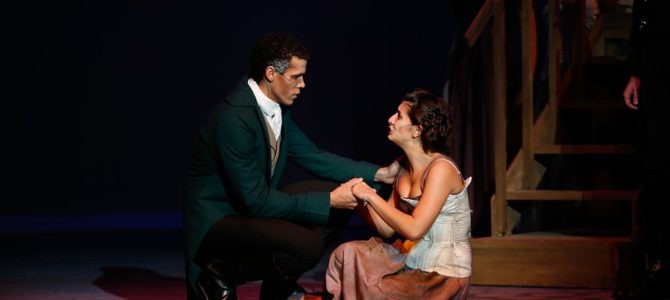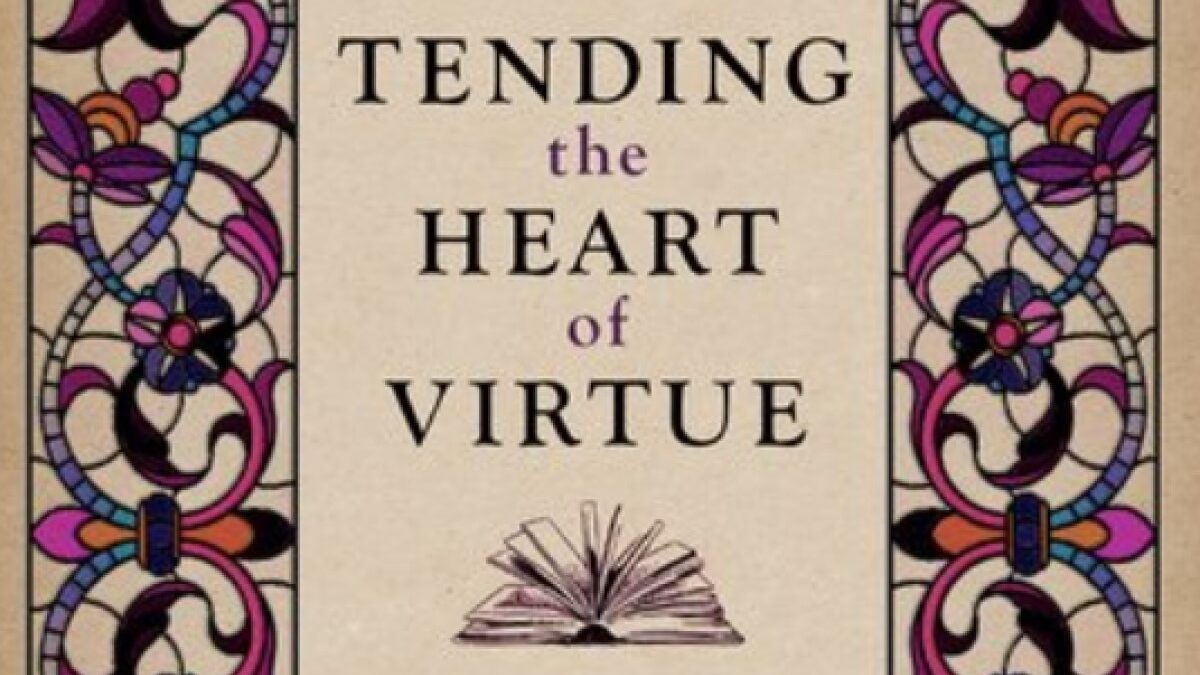
There is no lack of competing visions for societal change. The Me Too movement, Black Lives Matter, and the Women’s March all find common ground in a certain vision of change: if enough people gain awareness of the problem and participate in some level of revolt, society will reject whatever the bad action is (sexual assault, systemic racism, lack of gender equality, gun violence, etc).
Such a vision for social change is nothing new. It gets its modern beginning in the mass riots at the start of the French Revolution. The storming of the Bastille has captured the Western imagination for more than 200 years because it seems to fulfill this hope. The people rose up against injustice, overthrew its symbol, and society progressed. Our modern revolutionary organizations hold a similar hope: if the people all band together, “anything is possible.”
Such a view does not cohere with the biblical perspective on human nature, society, or history. The Bible locates hope of change not in human revolution, but in ultimate redemption of reality at the return of Christ. This biblical view is tucked within a contemporary cultural artifact: the currently touring Broadway production of “Les Miserables.” Based on Victor Hugo’s 19th-century novel, this musical is a profoundly Christian play, and it points to the coming return of Christ as the day true change will occur. Because of the quality of its literature, drama, and music, this message has spread worldwide.
A World of Depravity and Despair
The world of “Les Miserables” is beset by numerous social problems. We see clear economic disparity: Jean Valjean is a poor ex-con. Through the gift of Father Myriel’s silver, he becomes a wealthy businessman. Fantine’s tragedy is primarily economic: after losing her job, she finds herself out of options and must eventually become a “lady of the night” to financially support her daughter, Cossette.
What society would be complete without con artists? The Thenardiers represent the criminal class who live by tricking or robbing the economically productive. “Les Mis” shows us the scope of economic options, and the difficulty of moving from poor to wealthy.
Simultaneously, the play reveals an ineffective government unable to foster flourishing for all. The government is represented through Inspector Javert, who constantly privileges the nobility. In his world, the law is unfair, and Javert has no room for compassion or extenuating circumstances. “In mercy’s name” means nothing to Javert’s cold justice.
Finally, the running thematic element of “Les Mis” is an unjust prison system. Valjean’s initial crime (stealing a loaf of bread) receives five years of punishment, extended to 19 for attempted escapes. Upon receiving parole, Valjean discovers he has no possibility of supporting himself. No village wants to hire an ex-con, none but a foolishly naive priest will offer him hospitality.
“Les Mis” shows us a world resembling our own: a society filled with wealth, but rife with inequalities and existent injustices. The play offers us hope for change in the form of two young revolutionaries: Enjolras and Marius.
As young men in 1832, Enjolras and Marius are products of the French Revolutionary spirit born after the chaos of the revolution (1789-1805). Enjolras leads a band of wealthy friends who believe that revolution will solve their problems. His views are summed up in the song “Do you Hear the People Sing?”
Staged with Enjolras singing the initial verse then joined by a chorus, this song opens the revolutionary scene launched on the tomb of General Lamarck. Enjolras presents himself as the visionary who calls others to join him in the revolution. He sings, “the song of angry men, this is the music of a people who will not be slaves again.”
He calls his revolution a “crusade,” and posits that joining it will grant people access to his vision of new possibilities: “When the beating of your heart echoes the beating of the drums, there is a life about to start when tomorrow comes.” This revolution will bring the good life.
Such a life does not come without cost: “Some will fall and some will live.” But those who fall are an acceptable price because “the blood of the martyrs will water the meadows of France.” Enjolras encapsulates his goal in the symbol of the barricade: “Beyond the barricade is there a world you long to see?”
Here is the revolutionary dream in its purest. Enjolras has every confidence that at his call “the people will rise” (in the song “Red and Black”). Then evil will be undone and a new world will dawn.
A Second Vision of the Good Life
While Enjolras remains unshaken in his revolutionary fervor, his friend Marius is pleasantly distracted by love for Cosette. The clash between Enjolras’ universal dream of revolution and Marius’ particular love of an individual woman lies at the heart of “Red and Black.” This conflict offers a clue to the argument “Les Miserables” makes about human revolution and human happiness.
The song’s setting is the bar where the revolutionaries gather to plan the revolution. Enjolras is raising morale, and suddenly Marius enters, twitterpated with thoughts of Cossette. Enjolras discovers that his friend has lost the vision, and embarks on a dramatic song to persuade him otherwise.
He explains that “the colors of the world are changing day by day.” Red is “the blood of angry men” while black represents “the dark of ages past.” At the same time, red is also “a world about to dawn,” and black is “the night that ends at last.” Their task is to bring about the new world. There is no time for the foolishness of love, or the concerns of one person!
Marius has forgotten that “now there is higher call! Who cares about your lonely soul? Our little lives don’t count at all!” In one of the best examples of contrast in this musical, Marius sings back his interpretation of red and black. In Marius’ eyes, red reveals that he “feel[s] my soul on fire” while black is “my world if she’s not there.” Red contrasts “the color of desire” with black, “the color of despair.”
Enjolras’ rhetoric is too much for Marius, and Marius rejoins his revolutionary companions. For Enjolras, the revolution demands everything: the individual lives “don’t count at all.” All he can see is the envisioned future on the other side of the barricades. Yet happiness for Marius lies in a relationship with a particular person. By the end of the story, Marius’ happiness survives, while Enjolras’ vision of universal change dies on the barricade.
Something Truer than Revolt
In the course of the second act, the revolution fails. The people do not rise, and those with more guns triumph. After giving the audience reason to love the revolutionaries, “Les Mis” transcends sentimental naiveté to embrace a realistic approach to revolution; the majority of such movements fail.
In the song “Empty Chairs at Empty Tables,” Marius mourns his friends, revealing the cost of failure. Staged in the same bar where Enjolras, Marius, and their comrades planned the revolution, Marius stands alone. He recalls when “they rose with voices ringing” about tomorrow, “and tomorrow never came.”
Where they expected to find triumph, there is now only the “lonely barricade” bereft of living souls. In the place “where we talked about revolution,” the grieving Marius asks “What was your sacrifice for?” Marius expresses the failure of human revolution to bring about the promised tomorrow; we need something more, something truer, than human revolt can deliver.
From this cry of despair, “Les Mis” mounts to a joyous conclusion. Marius and Cossette marry, the Thenardiers return for one last hilarious scene, and Valjean is escorted to heaven by the souls of Fantine and Eponine. The final note of the musical, however, is not just the salvation of Valjean, but the hope of earthly redemption that applies to all mankind.
Wiping Away the Tears from Every Eye Forever
In the “Epilogue,” all the characters who died in previous scenes return, singing from their positions in eternity. They repeat the “Song of Angry Men,” but with significant twists. “Tomorrow” no longer lies beyond the barricades of human revolution, but in that glorious moment when the eschaton arrives and all creation is redeemed.
“Do you hear the people sing” returns, but it is no longer the “song of angry men.” This is the “music of a people who are climbing to the light.” That light is no earthly government making all things right, but rather living “in freedom in the garden of the Lord. We will walk behind the plowshare, we will put away the sword.” In this garden “the chains will be broken and all men will have their reward.”
These characters still ask “beyond the barricade is there a world you long to see?” but the epilogue adds “somewhere” to “beyond the barricade, indicating that the location is spiritual rather than physical. Hope is no longer found in political revolution, but rather in “the wretched of the earth” being welcomed to “the garden of the Lord.”
The call to pilgrimage there is transmitted by “distant drums.” Hope lies in tomorrow, when this promise of a renewed creation arrives. “Les Mis” ends with assurance that “Tomorrow comes!”
The Heart of ‘Les Miserables’ Success
“Les Miserables” is a superb drama filled with memorable characters, wonderful lyrics, and a redemptive story line. Since its first performance in London in October of 1985, critics have generally despised the show. Since it’s a traditionalist story filled with traditional characters, why, critics wonder, would anyone go see this story?
Yet from 1985 and into 2018, “Les Mis” has been a consistent sell-out show: since 1985, it has been seen by more than 60 million people in 42 countries. Part of its strength lies in that it asks the questions everyone wants answered: How can we be saved? How can the world be redeemed?
“Les Mis” responds with profoundly Christian answers: we are saved through encountering God’s grace, like Jean Valjean did, then living in light of that encounter with Christ. It’s shown through the rest of Valjean’s life after Father Myriel says, “I have bought your soul for God.”
At a societal level, “Les Mis” suggests our hopes can never rest in political revolution. Rather than revolution establishing a government that will undo all injustices, the Bible depicts evil remaining until Christ returns and completes the redemption begun at his resurrection. The earth and those in it are still “groaning,” awaiting the consummation of ages in Christ.
Through its excellent storytelling, “Les Miserables” has conveyed these gospel principles to people all around the world. Perhaps “Les Mis” succeeds because it taps into truths people long to know.









